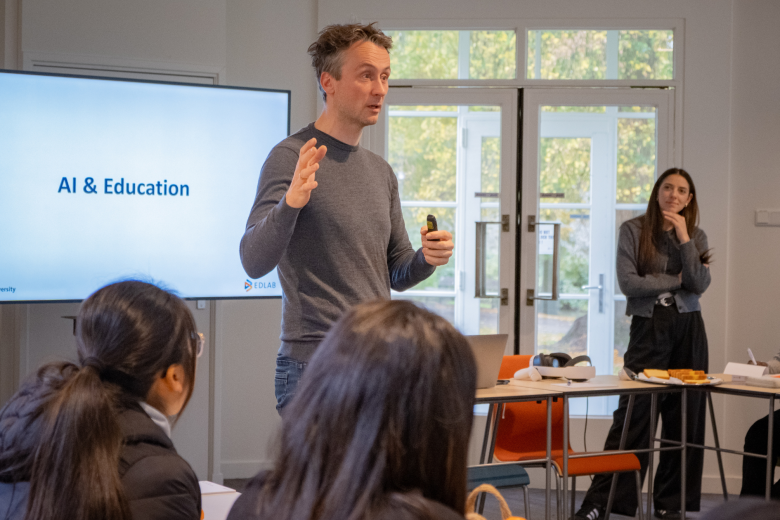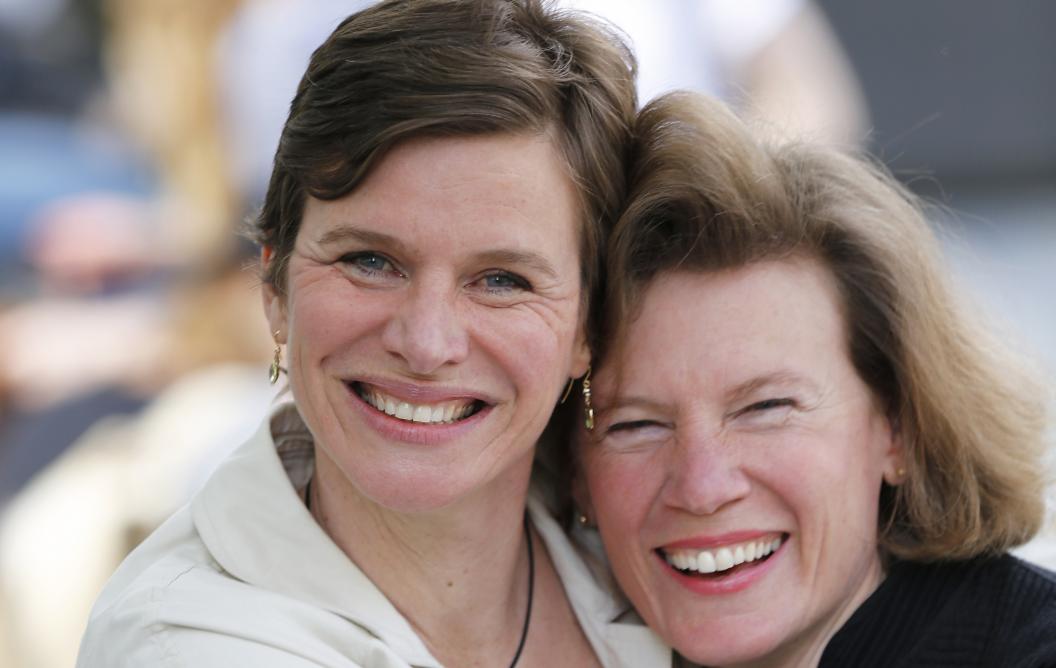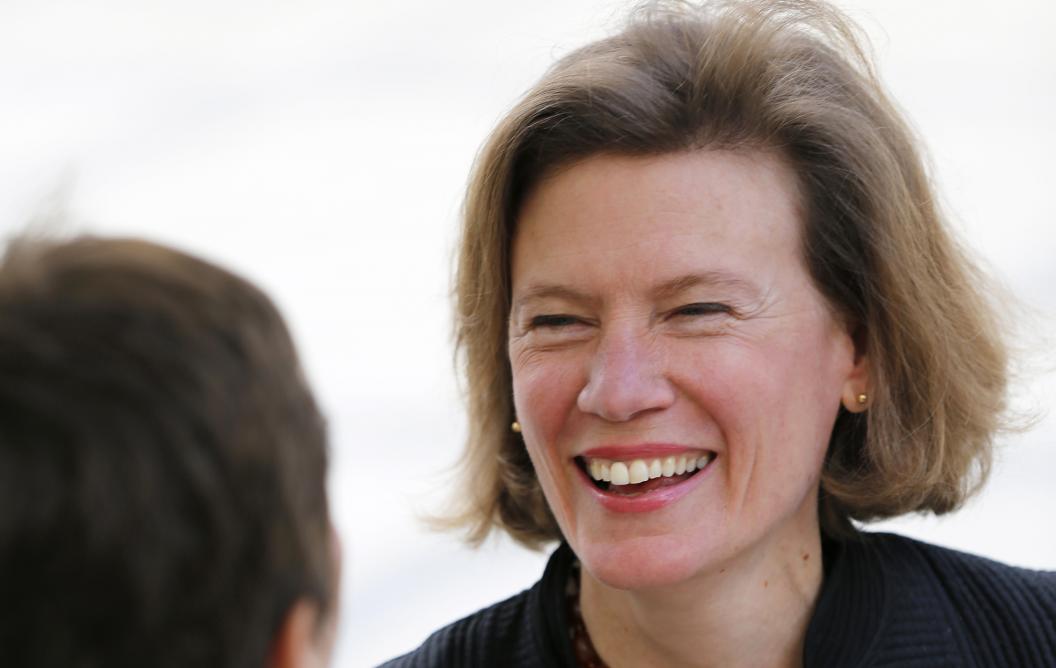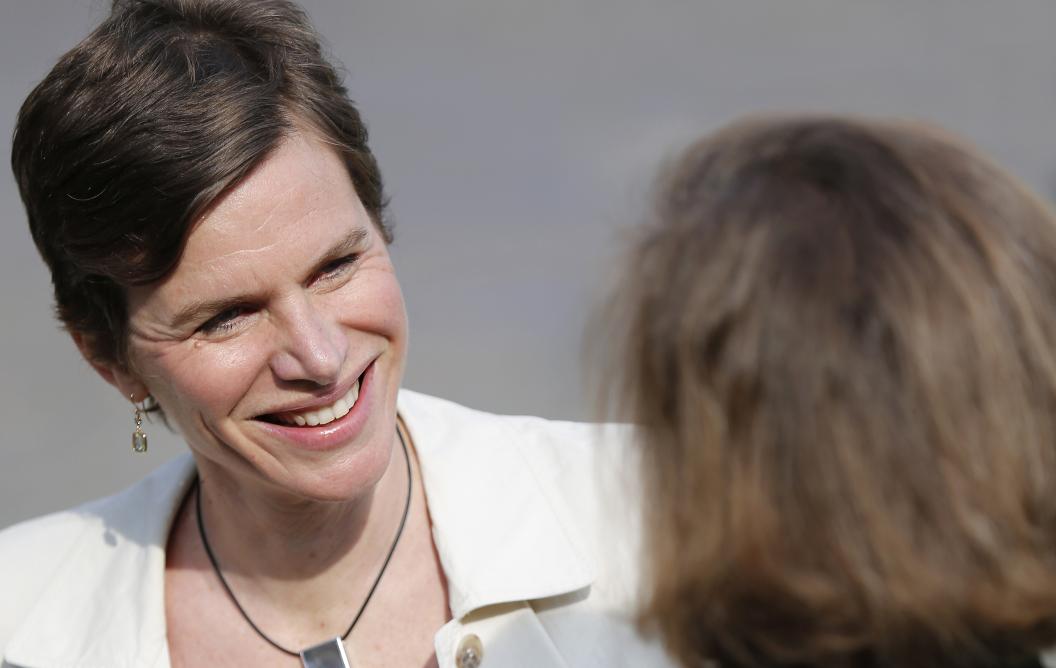Sisters doing what they love
Valentina and Mariana Mazzucato are both leading scholars in their fields of research: migration and the economics of innovation, respectively. Valentina, professor at Maastricht University, recently received the 500th prestigious Consolidator Grant from the European Research Council (ERC), while Mariana, professor at the Science Policy Research Unit at the University of Sussex, gained worldwide acclaim with her latest book The Entrepreneurial State. Judging by these sisters, if there’s a key to success, it’s enthusiasm.
Growing up as the daughters of a scientist – their father Ernesto was a physicist at Princeton University’s Plasma Physics Laboratory – it might seem logical that both Valentina and Mariana opted for academic careers. Looking back, they acknowledge that the Mazzucato household was the perfect breeding ground for their future work. “What definitely influenced me was the fact that both of our parents were concerned about social issues and critical in their thinking”, Mariana says. “So we’d be watching the TV news when I was little, and my father would always comment on it. We weren’t from a family that, say, just accepted how the news was transmitted to you.”
“And our mother was very socially engaged as well, trying in all sorts of ways to help people in the community who were less privileged”, Valentina adds. “That’s something I mentioned in my inaugural lecture, when I thanked her for teaching me empathy. I believe you can only really do the kinds of research we do if you’re able to place yourself in other people’s shoes and see the world from their perspective.
Migration research
That perspective is, for Valentina, the perspective of migrants. Her latest work revolves around transnational families; that is, families whose nuclear members are living in different countries. “I’m interested in understanding how people ‘do family’ across great distances, and what factors affect the way they’re able to be family. What kinds of care activities do mothers and fathers engage in when they’re thousands of kilometres away from their children? And vice versa: who is doing the proximate care of the children?”
Her research, focusing on migration between Africa and Europe, shows that families can be transnational in many positive ways. Nonetheless, certain conditions make transnational families problematic for children, and these are closely tied to the conditions in which the parents in receiving countries are living. “If parents are undocumented, have unstable jobs or are unemployed, this has direct psychological effects on the wellbeing of the children back home”, she explains. “I want to make clear how policies in one country can have repercussions at the very basic family level in another country – something which policymakers, who usually think at the nation-state level, often fail to take into account.”
Valentina intends to take this one step further by studying the ‘mobility trajectories’ of young people from Ghana, who either stay in their home country or accompany their parents to Europe. What they have in common is that they are all very mobile, constantly moving between different countries. “Although this might have a positive impact on their life chances, existing policies try to limit the kind of mobility that children engage in since there’s an implicit idea that mobility is bad for children”, she says. “But this has never been researched. No one has even conceptualised child mobility.” With the support of a large ERC grant, it’s up to her to break new ground.
Woman on a mission
“It definitely serves as recognition of her very different, pioneering work”, Mariana says of her sister’s grant. “But for me it’s like icing on the cake. The cake, I think, is great. Even if she hadn’t got the grant, it wouldn’t affect how I think about her research. What I admire is her engagement.” Valentina, in turn, describes Mariana as a woman on a mission. “She has battles to fight and she tries to change the world. That’s very inspiring.”
Mariana rose to renown in recent years with her critique of the market failure framework in economics, which posits that public policy and in particular innovation are the key drivers of long-term growth. Within this framework, the role of the state is limited to fixing existing markets when failures occur. This is, she argues, an inaccurate description of reality, for public intervention around the world has actually far exceeded this, be it in the United States, China or Germany.
“A wealth-creation process involves a lot of contributors, from workers to different types of public organisations and businesses”, explains Mariana. “And yet the framework we use describes only some of these agents as really dynamic and creative, and the other ones, including the public sector, are seen as just being there to facilitate, to de-risk, to administer and to regulate expenditure. This has led to a socialisation of risks and a privatisation of rewards. In this manner, our biased way of thinking about public sector intervention fuels problematic innovation policies as well as inequality.”
Curiosity
The success of her latest book The Entrepreneurial State has enabled Mariana to spread her message across the globe. With her sister, she shares the desire not only to understand certain problematics, but also to communicate these insights to a broader public, including policymakers, and thus make an impact in the real world. “Even though we’re both in academia, we’re not there in very traditional ways”, says Valentina. “Of course we want to publish in academic journals and be recognised by our community. But that’s not our main goal. Our curiosity is what drives us.”
This is also reflected in their career trajectories. Valentina, who never planned on becoming an academic, ended up doing a PhD because it gave her the opportunity to live and work in Africa. “And I did my PhD at a university where when you come out, you’re rubber stamped as being a Marxist”, Mariana elaborates. “But as long as you’re doing what you’re really interested in, there’s no need to worry about these kinds of things. What I tell my kids is not to worry about their careers – not as long as you’re really doing what you want to do, as well as doing your best at it.” Valentina agrees. “In one word, I say: enthusiasm. If you can listen to yourself and do the things that excite you, then you’ll be fine.”
So is there anything the Mazzucato sisters disagree about, any area in which they differ from each other? Not much, is seems. “Everyone tells us we look alike, and I think we’re also similar in how we both have a gut instinct for people who are honest. Neither of us are bullshitters”, Mariana laughs. Valentina: “Well, I do think she’s more the talker and I’m more the listener.” Mariana: “Really? I don’t think that’s true. Let’s talk about it!”
About Valentina and Mariana Mazzucato
Valentina Mazzucato (1965) studied at Williams College and Michigan State University in the USA. She lived in Africa for over 20 years, where she worked for various international development organisations in the field of agricultural development. She obtained her PhD from Wageningen University in 2000 and is now professor of Globalisation and Development at the Maastricht University Faculty of Arts and Social Sciences.
Mariana Mazzucato (1968) studied at Tufts University, Massachusetts, before obtaining her master’s and PhD from the New School for Social Research in New York. She has held academic positions at the University of Denver, London Business School, Open University and Bocconi University. She is currently professor in the Economics of Innovation at the Science Policy Research Unit of the University of Sussex. She is also a member of the UNU-MERIT board.
- http://www.sussex.ac.uk/spru
- http://marianamazzucato.com/the-entrepreneurial-state/
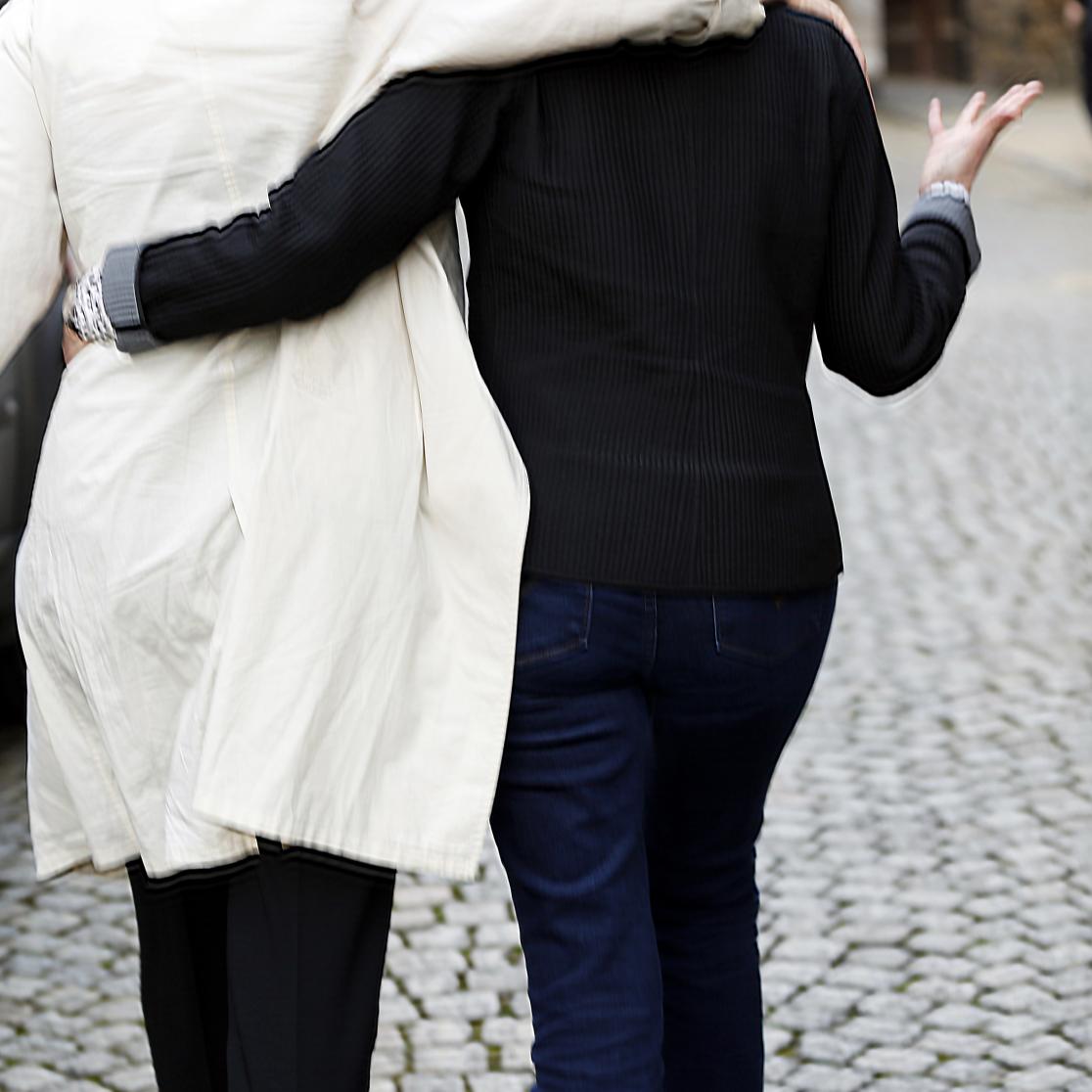
Also read
-
'De-composing Classical Music’ event was a success
On 13 October 2025, the Maastricht Centre for the Innovation of Classical Music hosted the event ‘De-composing Classical Music: Coloniality and Resistance’ at the Faculty of Arts and Social Sciences in Maastricht.
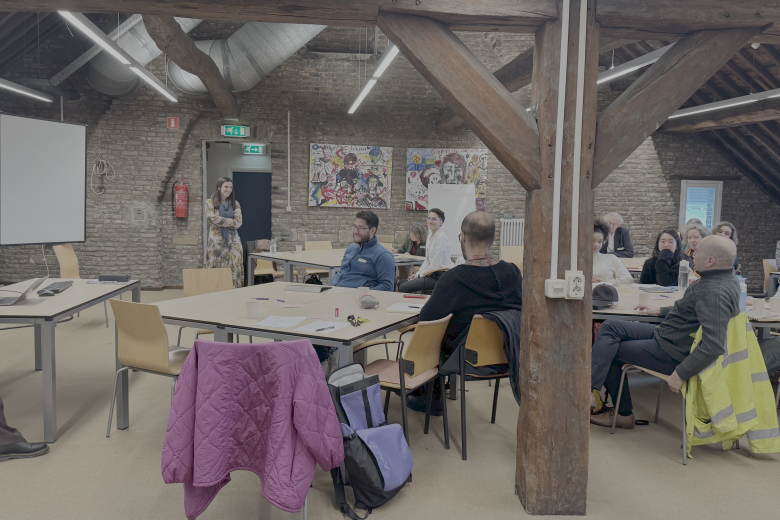
-
Co-edited collective volume by MCEL member Lilian Tsourdi on the intertwinement between criminal justice and immigration control
The new volume offers a contemporary understanding of the state of the art of ‘crimmigration’ with a focus on the European Union and challenges this paradigm of intersecting criminal justice and immigration control.
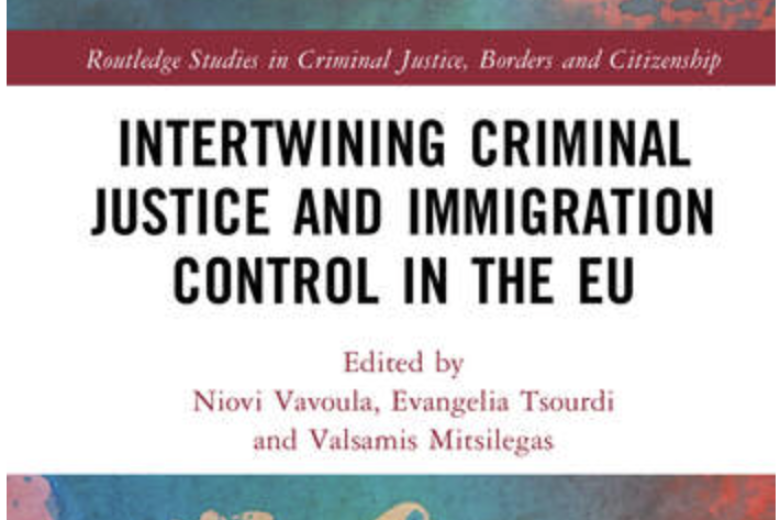
-
UWC Maastricht students get a taste of education innovation at EDLAB
On 21 October 2025, EDLAB hosted students from United World College Maastricht for the second year in a row, as part of their Youth Social Entrepreneurship programme.
